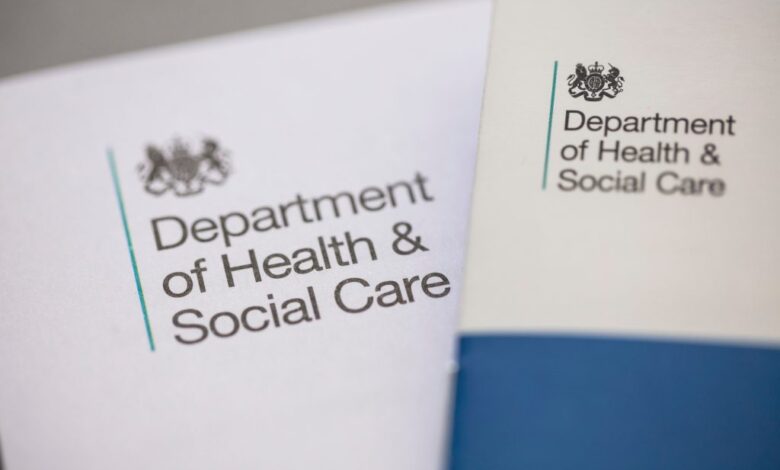DHSC reaffirms plan to regulate NHS managers following Letby

The government has confirmed that it has been exploring options for regulating senior NHS managers, in the wake of the Lucy Letby conviction.
The Department of Health and Social Care (DHSC) gave its opening statement to the Thirlwall Inquiry this week, as one of its core participants.
“There has been a renewed focus on whether additional measures are required to enhance the accountability of senior NHS managers”
Robert Cohen
The statutory inquiry is examining how Letby was able to harm babies in her care at the Countess of Chester Hospital neonatal unit between June 2015 and June 2016.
Letby is currently serving multiple life sentences for the murder of seven babies and the attempted murder of seven others.
In the immediate aftermath of her conviction, concerns were raised about whether poor governance and management at the hospital allowed Letby to commit her crimes for as long as she did.
Senior managers were accused during the trial of failing to act when clinicians first raised concerns about the former neonatal nurse.
Following Letby’s conviction, the parliamentary and health service ombudsman, Rob Behrens, argued that there was a “defensive leadership culture” in the NHS which often prevents staff from being able to raise concerns about colleagues.
These failings raised questions about why senior NHS managers are not regulated in the same way that nurses, doctors and other healthcare professionals are.
As such, many have called for the formal regulation for senior NHS managers, to prevent a repeat of the events seen at the Countess of Chester Hospital.
Robert Cohen, representing DHSC at the Thirlwall Inquiry, confirmed that the government would be looking to take this work further, as already promised in its election manifesto.
He said: “In light of the events at the Countess of Chester Hospital, there has been a renewed focus on whether additional measures are required to enhance the accountability of senior NHS managers and whether extending regulation to senior managers would be an effective means of ensuring patient safety.
“The new government committed in its manifesto to introducing professional standards for, and regulation of, NHS managers, ensuring those who commit serious misconduct can never do so again.”
Mr Cohen set out three options which DHSC would be considering for the regulation of senior NHS managers.
The first would be an accredited voluntary register, like those already held and quality assured by the Professional Standards Authority.
Another option would be introducing a statutory barring mechanism, similar to systems used for teachers and company directors, which would result in a “centrally held list of people who have been deemed to be unsuitable to practise a particular profession”.
Meanwhile, Mr Cohen also said full statutory regulation of NHS managers would be considered. This would require senior managers to join a register which states that an individual is qualified and suitable to practise a particular profession.
Mr Cohen noted that the statutory option would “seek to put managers on a similar regulatory footing as their medical and nursing colleagues, other healthcare professionals, accountants and lawyers”.
Calls to regulate senior NHS managers predate the tragic events at the Countess of Chester hospital.
Sir Robert Francis KC, who investigated care failings at the former Mid Staffordshire NHS Foundation Trust, called for managers to be regulated in the same way as nurses and doctors back in 2016.
Such a move is backed by leading nurse Helené Donnelly, who faced intense pushback for raising concerns about Stafford Hospital and has since become an advocate for speaking up.
She has argued that her own experiences, the Letby case and other whistleblowing cases demonstrate the need for heightened accountability for NHS managers.
In his submission to the Thirlwall Inquiry, Mr Cohen noted that statutory regulation of senior NHS managers had “been considered on a number of occasions over the past two decades”.
However, he said ministers and NHS leaders had previously concluded that, as most senior managers “are highly capable and have strong public and patient service values”, regulation would be disproportionate.
Regulation of managers had been “not seen to deliver sufficient improvements in public protection”, he explained.
However, the Letby case and evident shortcomings of management at the Countess of Chester have shifted the dial on this discussion.
Also giving evidence at the Thirlwall Inquiry this week was the Royal College of Paediatrics and Child Health (RCPCH), which showed support for regulation of managers.
In its submission, the college said: “The RCPCH supports the formal regulation of NHS managers but does not consider that it is in the best place to answer how such regulation should work, and whether it is regulatory oversight – or rather clarity of accountability – which needs to be made clear.”
More from the Thirlwall Inquiry







